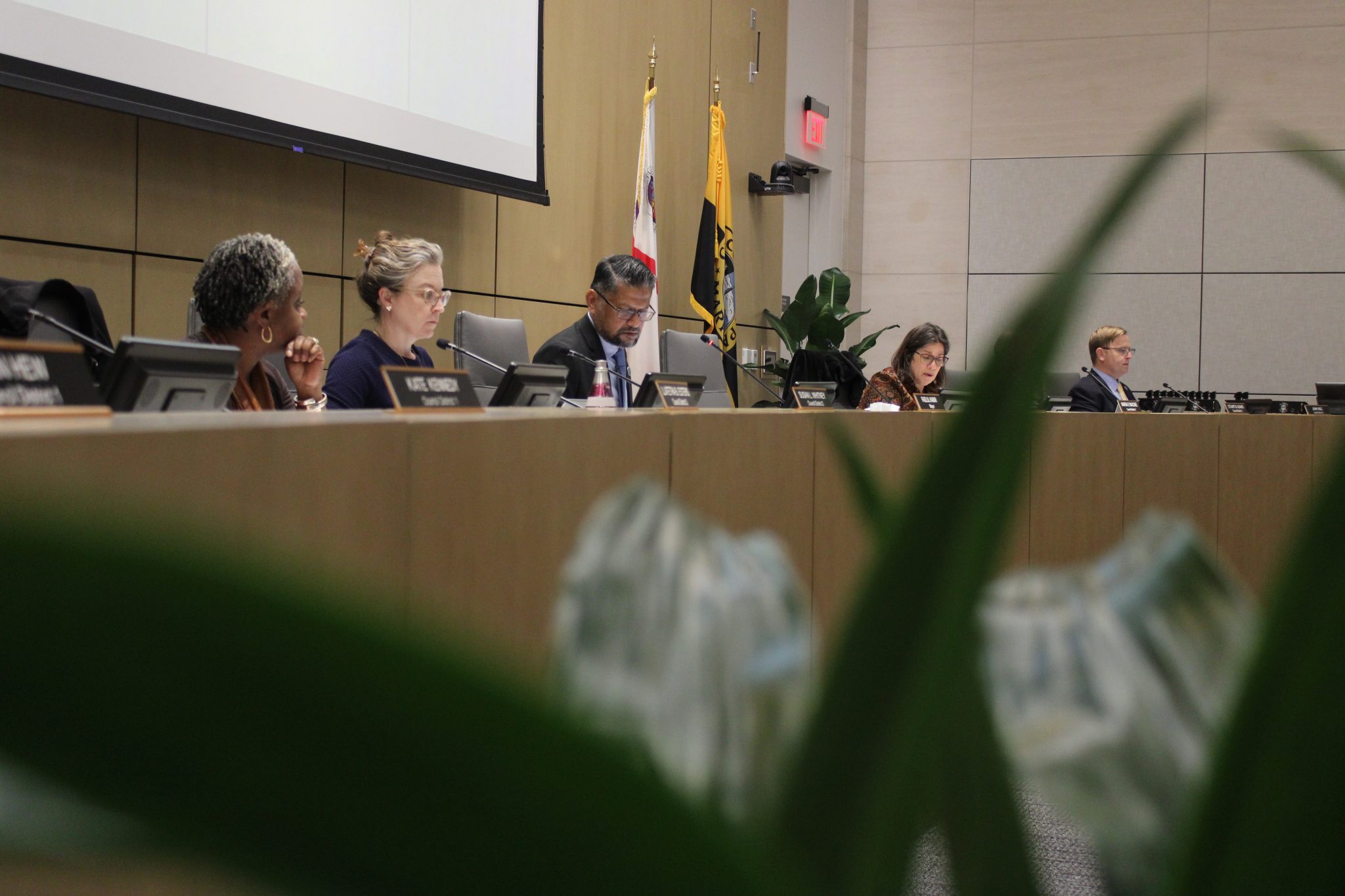The City of College Park decided during a city council meeting Tuesday to continue its partnership with VeoRide until 2025 without changes, despite several concerns from community members about how the company operates.
Council members decided to discuss the partnership after parking and accessibility issues prompted concern over the presence of VeoRide’s electric scooters and bikes in the city.
In the city’s current contract with VeoRide, all parking is intended to be forced parking, meaning a user should only be able to end a ride if the vehicle is in a designated hub or bike rack.
But VeoRide did not officially implement this forced parking mechanism until about two weeks ago.
From Oct. 16 to Oct. 23, city staff said, the city issued Veo 25 parking violations totaling $875. The violations included the company’s vehicles being parked outside designated bike racks and limiting accessibility on sidewalks.
[College Park City Council approves site plan for new Hillel building]
The issue was caused by a miscommunication that came from staff turnover on both sides. VeoRide implemented forced parking, according to the city’s community development planner Erik Valentine.
“The resolution of this misunderstanding has already begun to solve most of our problems,” he said.
Valentine noted the “stark contrast” in micromobility parking issues since the policy became enforced. No violations or fines have been recorded since VeoRide implemented forced parking in the city, according to Valentine.
Council members and city staff also said they revisited the partnership because of accessibility concerns. Some questioned VeoRide’s ability to respond when devices violate the forced parking mechanism and limit accessibility in the city.
Joe Bott, VeoRide’s policy and partnerships manager, said VeoRide has personal operatives on the ground and customer service for customers to report incorrectly-parked vehicles.
But when reports are not specific about a scooter’s location, employees can struggle to respond in a timely manner, he said.
“Sometimes people are less specific,” Bott said. “We try to address the things we know in terms of priority, but it will automatically create a ticket for [customer service] to go address that and deal with it.”
District 2 council member Susan Whitney said to shift the responsibility off residents’ shoulders, there should be a more proactive system to report incorrectly-parked vehicles.
Bott responded that VeoRide’s team attempts to be proactive.
According to Valentine, some community members also send reports through a third-party service called Ride Report, but city staff often doesn’t have the resources to track this data.
District 3 council member Stuart Adams said his concerns about VeoRide stem from a lack of designated parking in much of his district.
“There’s basically no practical usage of VeoRide over there at this time,” Adams said.
To ease the shortage of micromobility parking in parts of the city, District 3 council member John Rigg suggested VeoRide forge agreements with College Park landowners to rent driveways and other spaces as designated parking areas.
[Students with disabilities express concerns about micromobility parking habits]
Incoming District 1 council member Jacob Hernandez, who won a seat in this month’s city election, also expressed worries over VeoRide’s policy requiring users to relocate vehicles with low or no battery to a designated parking hub or bike rack. The policy could cause physical challenges for users, Hernandez said.
“Last week I actually had to walk it about half a mile,” Hernandez said. “If we could find some sort of consistency especially for many of the riders that are in our city it would be greatly appreciated.”
Bott said he believes College Park can implement unique solutions to solve some of its issues with VeoRide, such as adding more permeable pavers — a type of drainage system — to city streets to enhance their durability. Permeable pavers could prevent water damage to VeoRide vehicles and foster the development of bikeways on city streets.
“One of the things I’ve tried to do is encourage sort of thinking outside of the box,” Bott said. “I think if we work together and collaborate there’s lots of creative ideas we can do.”



